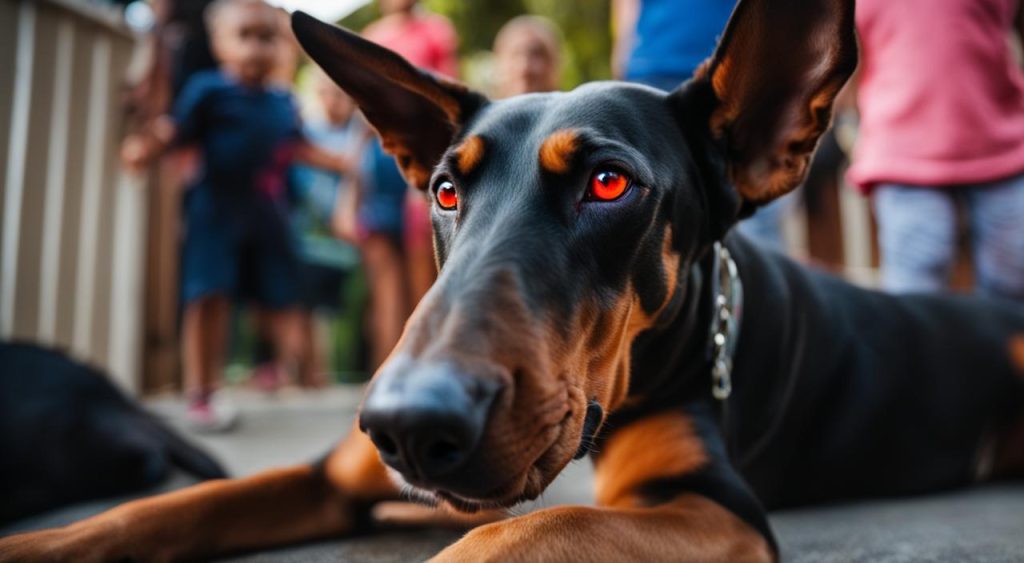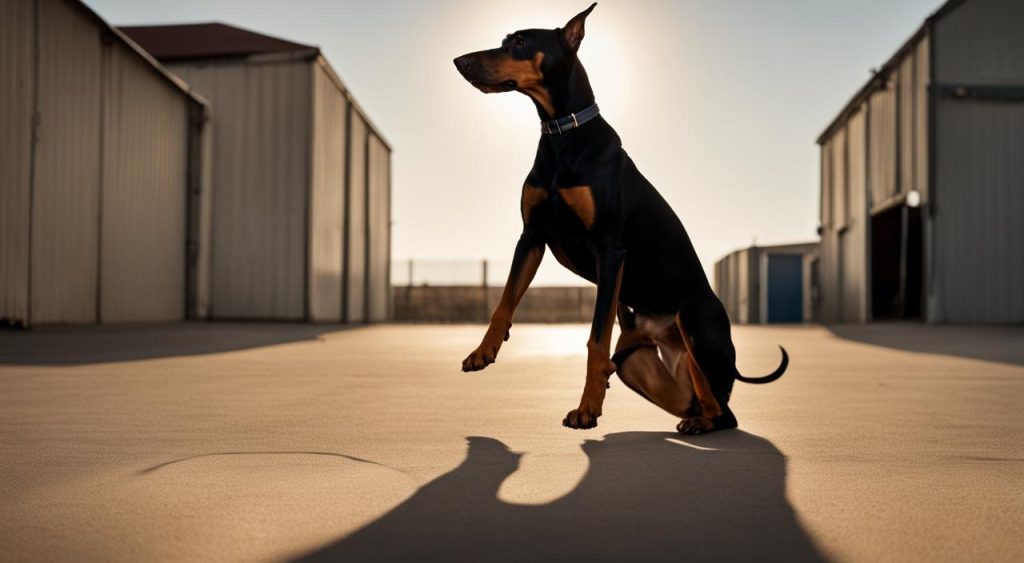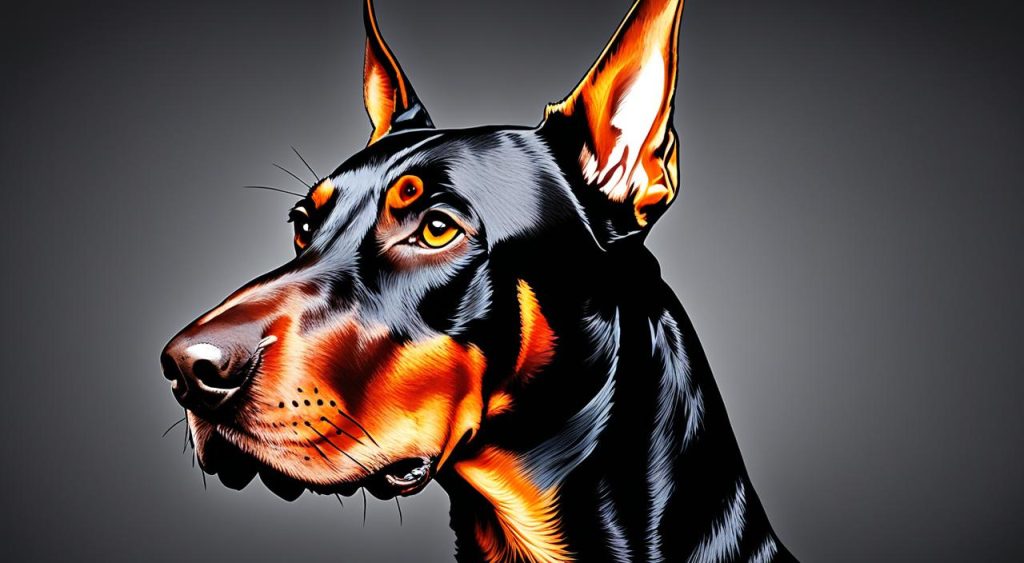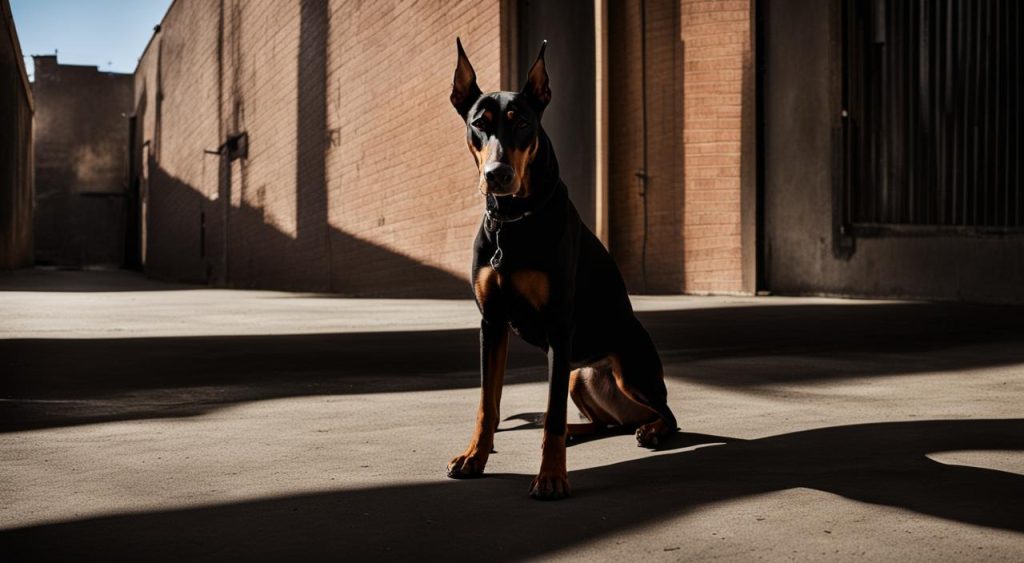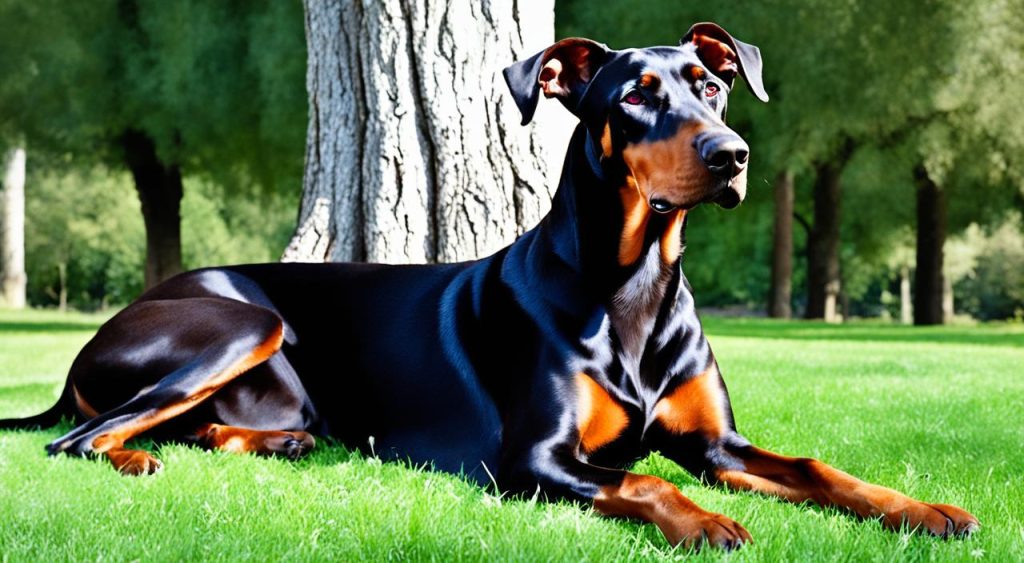As a Doberman owner, you may wonder if your beloved companion will become more aggressive as they get older. It’s important to debunk some common misconceptions and understand the factors that contribute to aggression in aging Dobermans.
Contrary to popular belief, Dobermans are not known for sudden acts of aggression or turning on their owners. They are a loyal and highly intelligent breed, with a strong desire to please their owners. There is no scientific evidence to support the claim that their brain size causes aggression.
When aggression is present in Dobermans, it is typically attributed to their past treatment or physical health. Canine Compulsive Disorder and hypothyroidism are two conditions that may contribute to aggression, but both are treatable.
It’s also essential to note that Dobermans are not the most aggressive breed. According to Doberman Dog Bite Statistics, they account for only a small percentage of reported dog bite fatalities in the United States.
Key Takeaways:
- Dobermans are not known for sudden acts of aggression or turning on their owners.
- Aggression in Dobermans is usually attributed to past treatment or physical health.
- Canine Compulsive Disorder and hypothyroidism are treatable conditions that may contribute to aggression.
- Dobermans account for a small percentage of reported dog bite fatalities in the United States.
Understanding Doberman’s Developmental Stages
Dobermans, like all dogs, go through various stages of development that impact their behavior.
During the puppyhood stage, they learn basic behavioral patterns and socialize with their littermates.
The socialization period between 7 and 12 weeks is crucial for exposing them to different environments, people, and dogs to ensure well-rounded behavior.
The seniority classification period from 12 to 16 weeks is when they may test their owners’ authority and establish their role in the pack.
The flight instinct period from 4 to 8 months is when they may exhibit independence and a tendency to run off.
Adolescence from 5 to 18 months brings hormonal changes that can affect behavior, with males becoming more aggressive and females going through estrus.
The second fear imprint period between 6 and 14 months may cause sudden fear or shyness in dogs, especially males during adolescence.
Conclusion
To effectively manage aggression in aging Dobermans, it is crucial to employ the right training techniques, prioritize socialization, and address any underlying medical conditions. By understanding the various developmental stages of a Doberman’s life, you can anticipate and proactively respond to behavior changes that may arise.
Establishing a strong leadership role and setting clear boundaries early on is key in preventing the development of aggression in aging Dobermans. Consistent and structured training, along with regular exercise and mental stimulation, can contribute to a well-behaved and balanced adult Doberman.
If you find that your aging Doberman is displaying aggression or behavior changes that are concerning, seeking guidance from a professional dog trainer or behaviorist is highly recommended. They can provide expert advice tailored to your specific situation and help you address the aggression effectively.
With the right approach and proactive management, you can ensure a positive Doberman temperament in older age and foster a harmonious bond with your aging companion.

